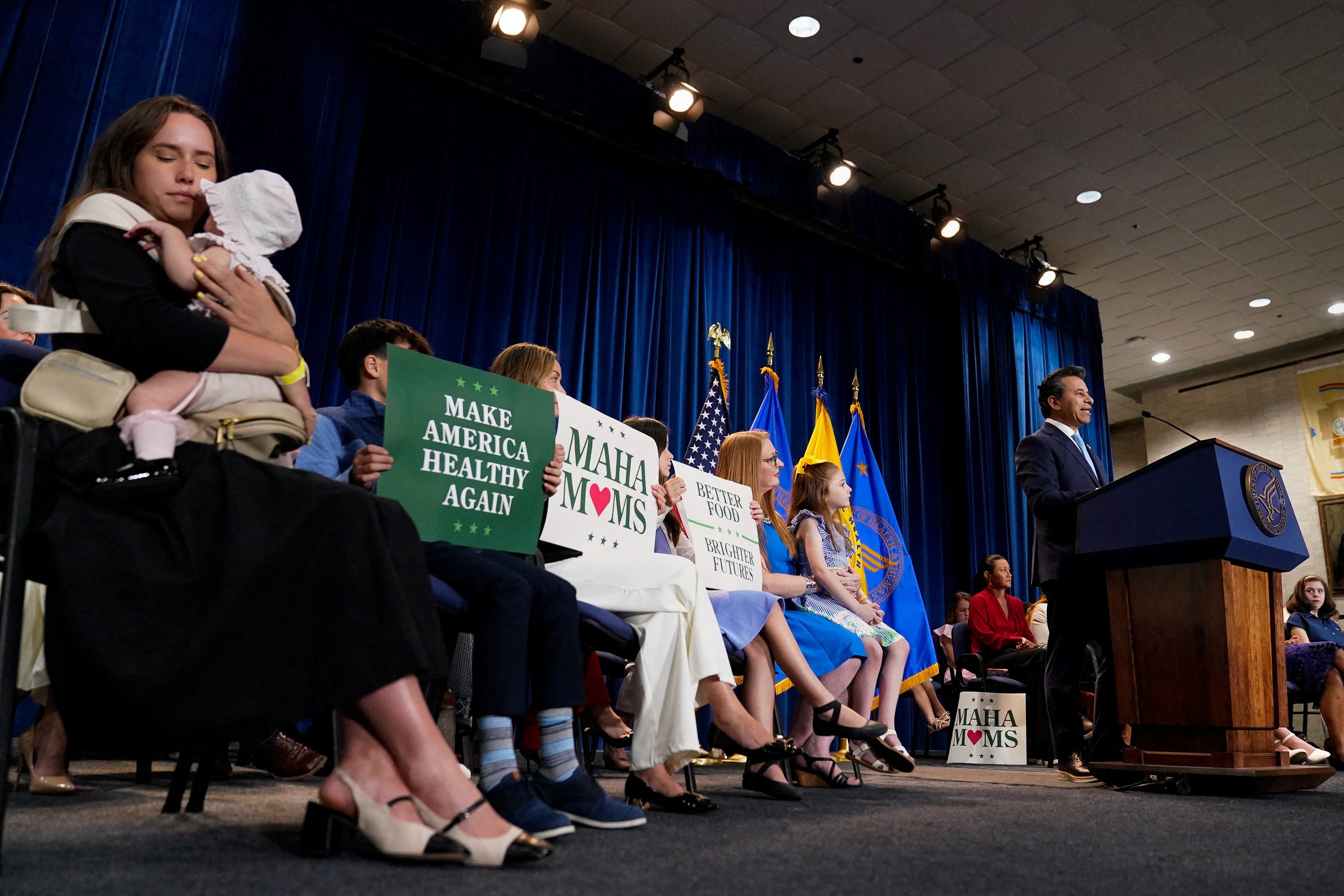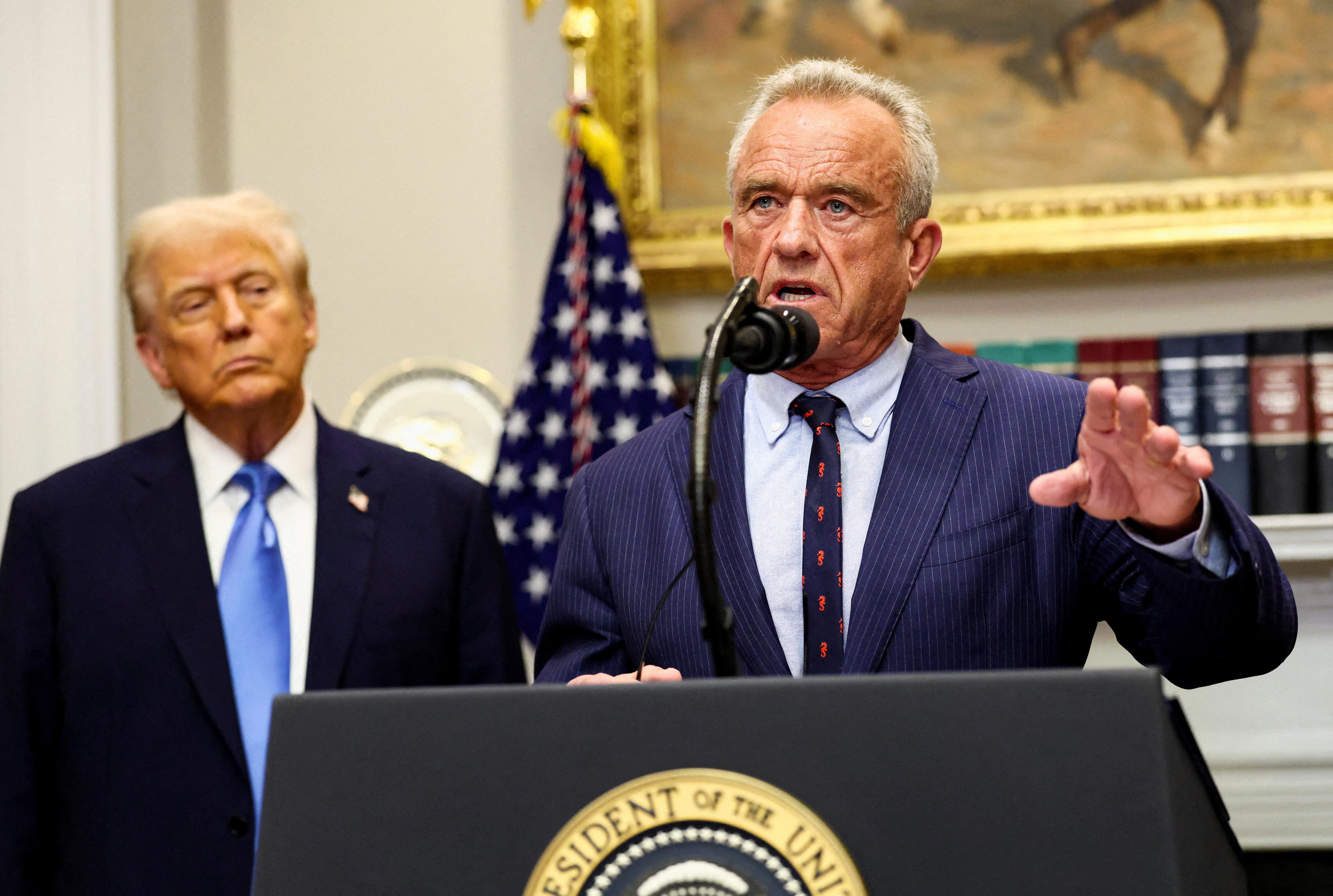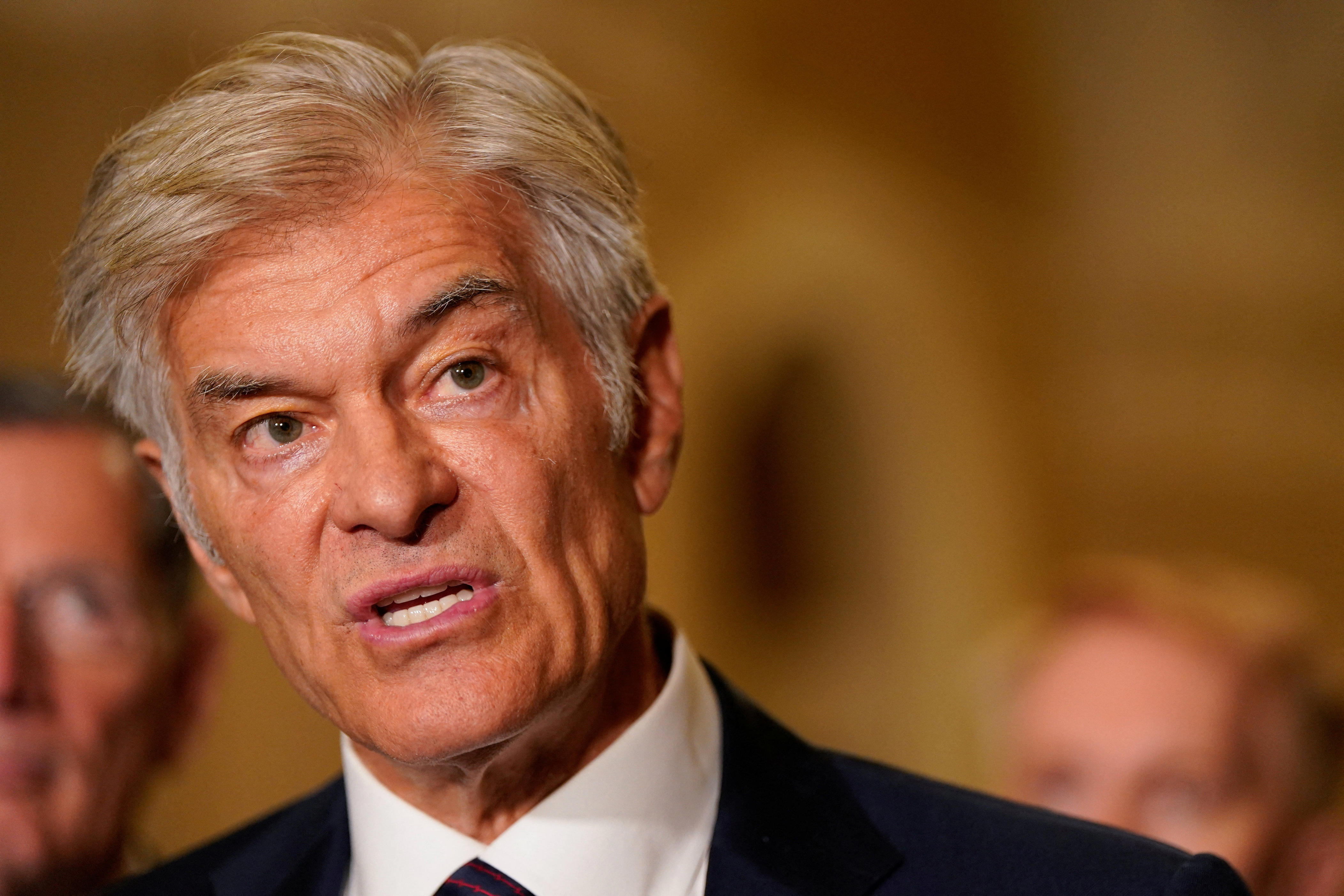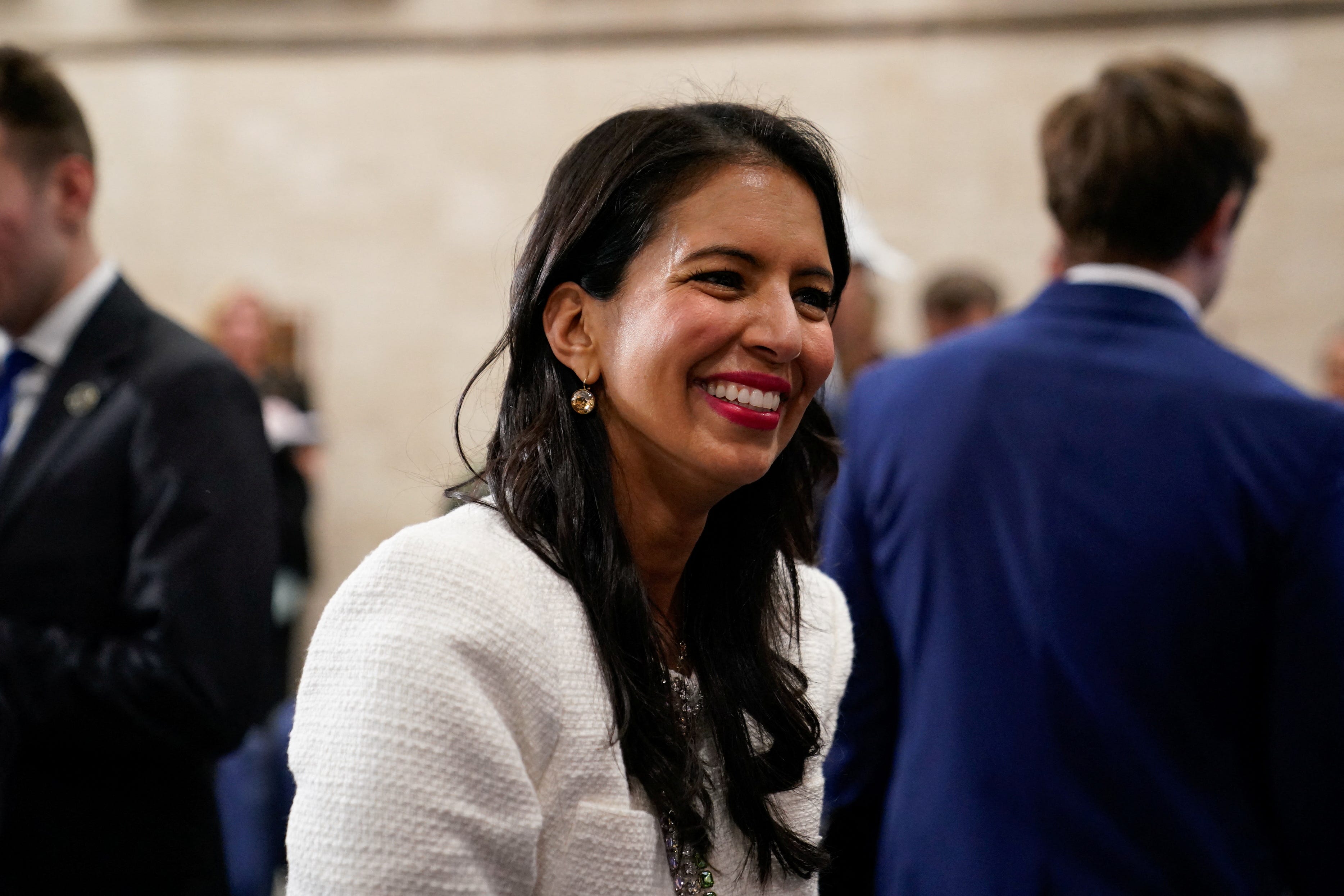After years of feeling dismissed for their views, which often diverge from mainstream science, the mothers in the Make America Healthy Again movement — known as MAHA moms — are experiencing a sense of validation. Their perspectives are now being acknowledged at the highest levels of government.
At an event on September 22, where President Donald Trump and Health and Human Services Secretary Robert F. Kennedy Jr. discussed the potential link between Tylenol use during pregnancy and the development of autism or attention-deficit/hyperactivity disorder (ADHD), the men handed the microphone to two MAHA moms, encouraging the audience to listen to their voices.
Claire Dooley, a second-generation advocate from Washington, D.C., who is skeptical of vaccines, expressed that this moment marked a shift for many MAHA moms. "There’s a whole group of people who have been feeling alienated for a very long time, and now we don’t feel like that anymore," she said. "I think that’s kind of the way we can step into the future."
Vaccines are a central issue for MAHA moms
The MAHA movement unites advocates for independent healthcare and parental rights. It includes mothers seeking a more organic lifestyle, individuals distrustful of pharmaceutical companies, grassroots organizations, donor-backed groups, Facebook communities, and nonprofits like Children's Health Defense, which was previously associated with Kennedy.
Dooley noted that many MAHA members come from the left, having felt excluded from mainstream conversations. "So we have people on the right who are listening to us, so we’re like 'OK, the right is listening to us, let’s do that.'"
One of the key themes within the MAHA movement is the belief that vaccines cause autism. This idea has been repeatedly debunked by scientific research. The 1998 study that popularized this myth was retracted 15 years ago, and the British Medical Journal labeled it "an elaborate fraud." Despite this, many parents continue to support the view and seek answers.
Dooley, a filmmaker and member of the MAHA Action committee, works with others who claim their children were severely harmed by vaccines. She emphasizes the importance of striving to make vaccines as safe as possible.

Her mother, Melisha Dooley, a self-described "crunchy" mom of six from Mississippi, lobbied for the state to allow parents to opt out of vaccines based on religious grounds. A federal judge implemented this exemption in 2023 following a lawsuit from parents.
"It all comes down to parental rights," Melisha Dooley said. "It’s not my right to tell you what to do with your child, just like it’s not your right to tell me what to do with mine."
Melisha Dooley also wants to see Kennedy address "corporate capture" in American healthcare. Specifically, she hopes he will help repeal the 1986 law that shields doctors and pharmaceutical companies from liability for vaccine injuries and establish an arbitration system for those claiming vaccine-related harm.

Kennedy highlighted his comments about the connection between vaccines and autism on Facebook after the September 22 event. He stated that a significant portion of mothers of children with autism believe their child was injured by a vaccine. He also criticized the scientific community for not doing enough in the past.
Kennedy previously restructured a key vaccine panel, adding members who are skeptical of vaccines. The panel voted against recommending vaccines containing thimerosal, a preservative that anti-vaccine advocates have long targeted, and encouraged more discussions between patients and their doctors about vaccine risks.
Claire Dooley expressed trust in Kennedy’s intentions. "I just know he’s going to do everything he can in his position," she said. "But he also can’t come out and say, 'Vaccines are causing autism, and let’s take them all away.'"

Tylenol use during pregnancy
Alana Newman, a 39-year-old mother of three from Dallas, found comfort in the September 22 news conference with Kennedy, Trump, and other health officials. The discussion focused on a potential link between Tylenol use during pregnancy and later diagnoses of autism or ADHD, though Trump made unfounded claims.
"It was comforting that Trump actually cared about the mother’s perspective and brought two mothers to the podium," Newman said. "I’m so sick and tired of people saying to me, 'Alana you’re not a doctor,' and basically calling me stupid."
Public health experts, scientists, doctors, and the maker of Tylenol have refuted the claims made during the news conference. While some studies suggest a link between acetaminophen and neurodevelopmental disorders, others have called this into question, leaving no settled conclusion in the scientific community.
Dr. Mehmet Oz, head of the Centers for Medicare and Medicaid Services, emphasized that while there seems to be a higher risk of autism in children whose mothers used acetaminophen, causation has not been proven. He noted that the administration has taken a different approach compared to previous governments.

Dr. Andrea Baccarelli, a Harvard University professor, said that the risk of neurodevelopmental disorders after prenatal use of Tylenol is most pronounced when the expecting mother uses it for four weeks or longer. Animal studies support a causal relationship, but Baccarelli stressed the importance of using acetaminophen cautiously.
Stephanie Carmody, a podcaster from Glastonbury, Connecticut, praised Kennedy for addressing Big Pharma and spoke about her own reluctance to take over-the-counter drugs. "Something as simple as acetaminophen, I don't think most people realize the damage it can do," she said.
Some MAHA moms focus on the food system
Dr. Ana-Maria Temple, a holistic pediatrician from Charlotte, North Carolina, supports Kennedy's efforts to change the status quo. She bases her treatments for conditions like eczema and autism on nutrition rather than medication.
Temple criticized the traditional medical model, which often provides only 10 minutes per patient, making it difficult to implement nutritional interventions. "I like that (since) RFK has come into play, he's like, 'Wait, what are we doing? Why are so many kids sick?'" she said.
Vani Hari, a 46-year-old mom of two from Charlotte, has been advocating for the removal of chemicals in processed foods for over a decade. She is pleased with Kennedy's efforts to eliminate certain additives from food.
Hari launched a Change.org petition in 2013 to remove artificial food dyes from Kraft products, which led to changes in specific items. She also convinced Chick-fil-A to switch to antibiotic-free chicken in 2014, although the company has faced supply chain challenges since 2024.
"It’s been mere months since he took office, and he's already convinced over half of the food industry to start removing artificial food dyes," Hari said. "He's called for the review of the nutritional guidelines of infant formula to be updated."